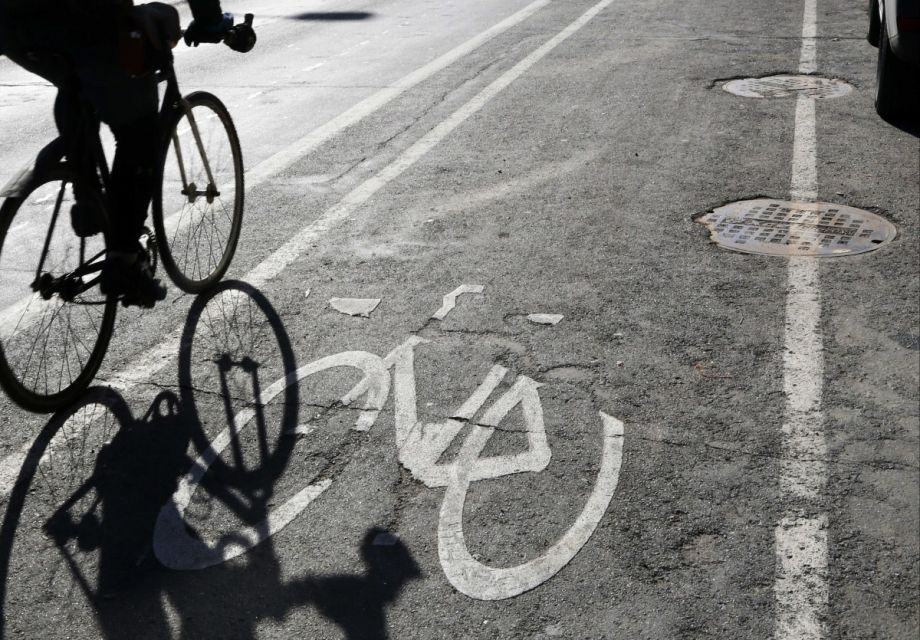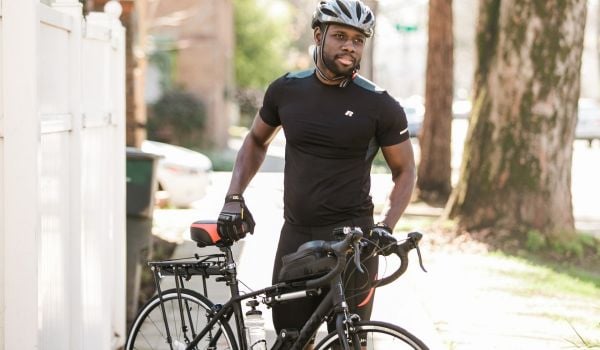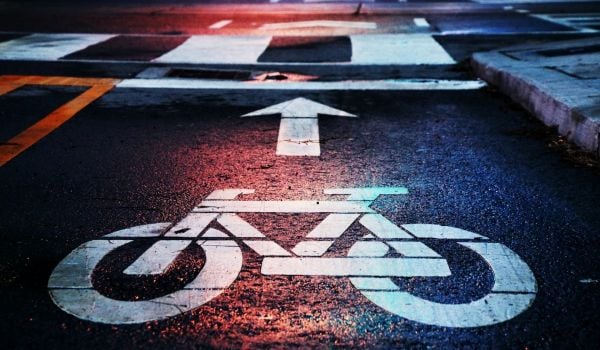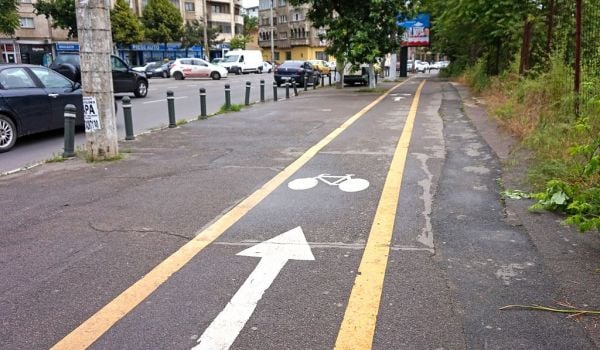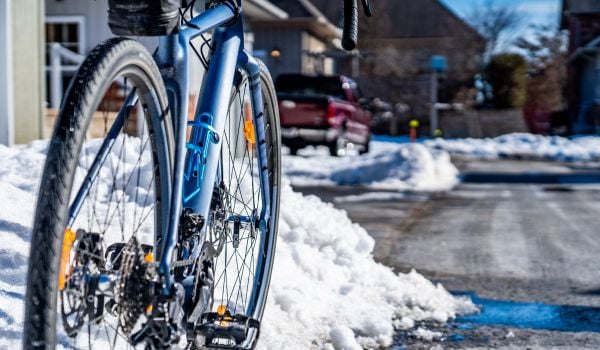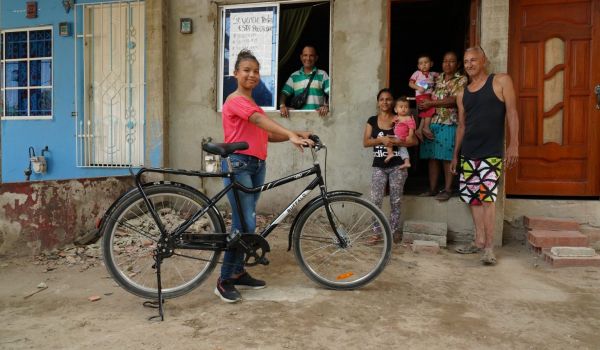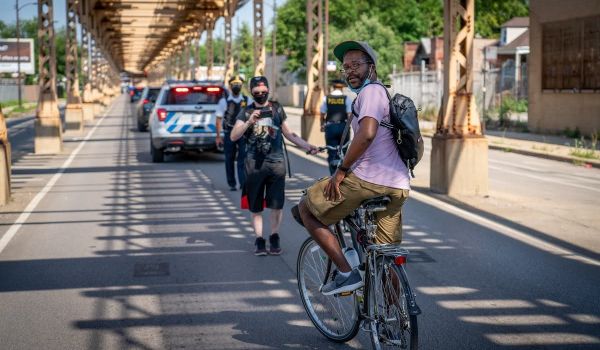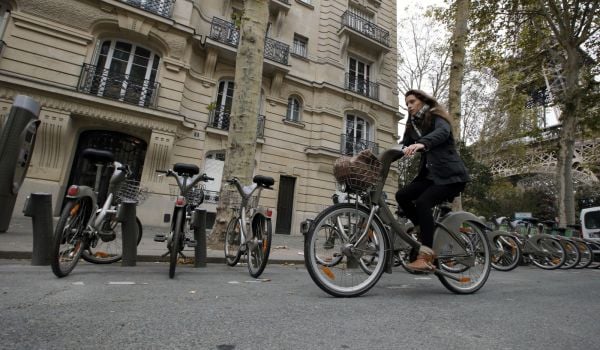A cyclist hit by a car driving 60 mph is suing both the city of Portland and state of Oregon, reports Oregon Live. The suit highlights the potentially disastrous (and costly) consequences of careless road design.
In December of 2017, cyclist Robert A. Smith was struck by a car that cut in front of a truck and sped up to reach Interstate 5.
According to Oregon Live:
In a lawsuit filed Thursday, Robert A. Smith claims it shouldn’t have come as a surprise to the government entities responsible for designing a North Greeley Avenue bike lane that a cyclist would one day be seriously injured or killed. The southbound bike lane crosses an on-ramp to Interstate 5 —a section of road where the speed limit is 45 mph but drivers often travel 55 mph to 60 mph.
Smith suffered a broken leg, ankle, pelvis, hand and ribs in addition to chipped teeth, collapsed lungs and a traumatic brain injury, the paper reports. He seeks $1.35 million.
The lawsuit is similar to a string of legal actions in Los Angeles. According to the Los Angeles Times, the city faced skyrocketing costs — paying out a total of about $19 million — for lawsuits over bike crashes in 2017.
From the Times:
The surge has defied city efforts to brand Los Angeles as a place that welcomes bicyclists, and comes as officials trumpet that its streets have improved. The Bureau of Street Services says it reached “a historical high of 4,821 lane miles” paved in the past two budget years, bringing the average grade of city streets up to a C+.
But fixing the most badly broken streets is so costly that the city has instead focused on preventing salvageable roads from sliding into disrepair.
The article makes several unfair characterizations, according to Streetsblog — only one of the crashes mentioned actually took place in a street with a bike lane. And that $19 million pales in comparison to the $40.9 million in settlements paid to drivers in 2017.
Still, as Bicycling points out, cycling has grown dramatically in popularity throughout the Los Angeles area. The number of L.A. bike commuters increased by 33 percent between 2010 and 2016, according to Census data. That dramatic growth — coupled with poorly maintained streets and inadequate signage — could continue to leave the city vulnerable to lawsuits. In San Diego, where promoting cycling has been part of the city’s strategy for slashing emissions, a similar string of actions occurred last year.
Of course, as Next City has covered, lawsuits also can be a tool wielded to prevent bike lane creation in the first place, from Seattle business owners worried about bike lanes eating up parking to the New York politician who claimed in 2015 that cycling infrastructure harms the environment.

Rachel Dovey is an award-winning freelance writer and former USC Annenberg fellow living at the northern tip of California’s Bay Area. She writes about infrastructure, water and climate change and has been published by Bust, Wired, Paste, SF Weekly, the East Bay Express and the North Bay Bohemian
Follow Rachel .(JavaScript must be enabled to view this email address)

